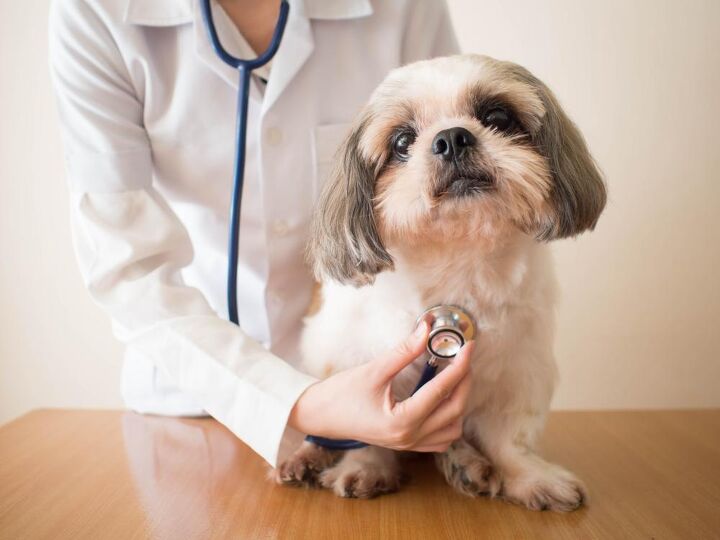Gastritis in Dogs: Everything You Need to Know

We all experience occasional gas, bloating, and other digestive symptoms from time to time and so does your dog. It’s no surprise when your dog has an upset stomach after eating too much people food, but when digestive issues become chronic you should talk to your veterinarian. Gastritis is a condition that leads to a variety of digestive symptoms in dogs and it should be treated. Read on to learn more.
Gastritis is a condition characterized by inflammation of the lining of the stomach. It can occur suddenly as a short episode (acute gastritis) or may persist for weeks or months at a time (chronic gastritis). Regardless which type of gastritis your dog has, it is important to understand the condition and to know what causes it to develop. First, however, let’s talk about the symptoms.
Here are the most common symptoms of gastritis:
- Excessive vomiting
- Decreased appetite
- Dehydration
- Increased thirst
- Lethargy
- Depression
- Diarrhea
- Blood in stool or vomit
- Black, tarry stools
- Abdominal pain
Acute gastritis is common in dogs. Dogs have a tendency to eat anything and everything, but not everything agrees with them. Most dogs recover within a few days with proper treatment which often includes short-term withholding of food. In some cases, gastritis is linked to an underlying condition like infection, allergies, autoimmune disease, stomach cancer, kidney failure, inflammatory bowel disease, ulcers, or neurological disease.
If you suspect that your dog is suffering from gastritis, talk to your veterinarian. Your vet will be able to confirm the diagnosis and recommend a course of treatment to resolve symptoms.
Gastritis in dogs is typically diagnosed through blood tests, urinalysis, fecal tests, and abdominal x-rays or ultrasounds. In acute cases, minimal diagnostic measures are usually enough but more involved testing may be required for chronic gastritis. Once your vet identifies the cause of your dog’s gastritis, you can talk about treatment options.
Here’s what treatment for acute gastritis might look like:
- Withholding food for 24 to 48 hours
- Offering small amounts of water during the first 24 hours
- Feeding small amounts of highly digestible food after 24 hours
- Resuming the normal diet with small meals every few hours
- Gradually increasing the amount of food given over several days
In the event that your dog needs medical treatment for acute or chronic gastritis, there are several options. Anti-emetic medications can help stop vomiting and fluid therapy may be required if your dog is very dehydrated. Proton pump inhibitors may be given if your dog has developed severe stomach ulcers and gastrointestinal protectants may be given as well. With prompt treatment, the prognosis for dogs with acute gastritis is very good. For chronic gastritis, it all depends on the underlying cause.
Your dog’s health is not something you should neglect. If you notice any change in behavior or changes to your dog’s appetite or bowel movements, talk to your veterinarian. The sooner you diagnose the problem and start treatment, the sooner your dog will go back to being healthy and happy.

Kate Barrington is the loving owner of two cats (Bagel and Munchkin) and a noisy herd of guinea pigs. Having grown up with golden retrievers, Kate has a great deal of experience with dogs but labels herself a lover of all pets. Having received a Bachelor's degree in English, Kate has combined her love for pets and her passion for writing to create her own freelance writing business, specializing in the pet niche.
More by Kate Barrington























